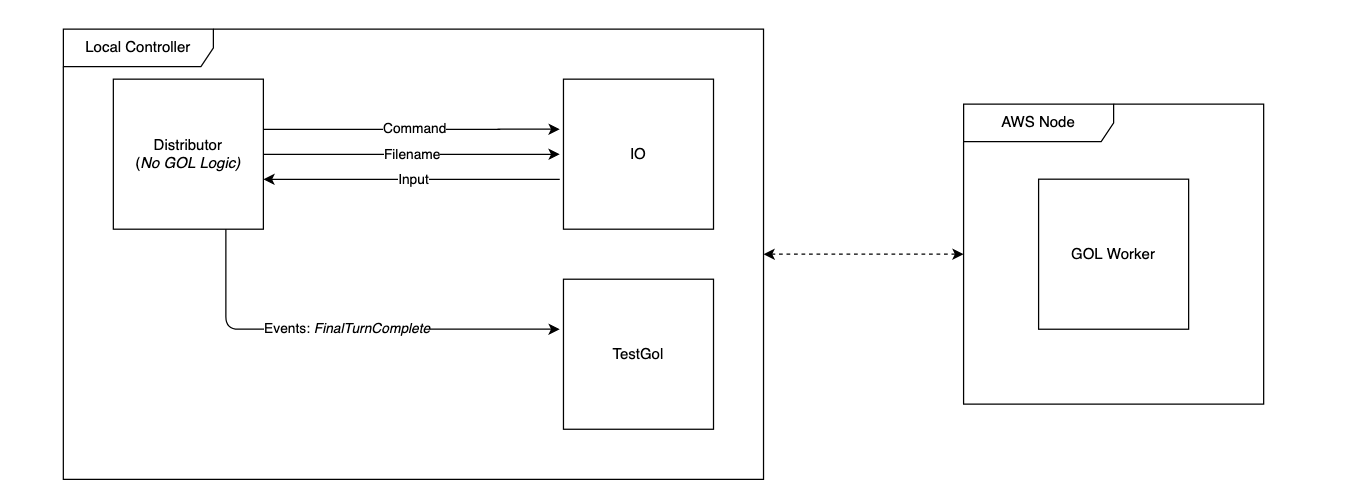Distributed Implementation
In this stage, you are required to create an implementation that uses a number of AWS nodes to cooperatively calculate the new state of the Game of Life board, and communicate state between machines over a network.
Below is a series of suggested steps for approaching the problem, but you are not required to follow this sequence, and can jump straight to implementing the more advanced versions of the system if you feel confident about it.
Your implementation will be marked against the success criteria outlined here.
Step 1
Begin by ensuring you have a working single-threaded, single-machine implementation. You should be able to test your serial code using cargo test --release --test gol -- --threads 1 and all tests should pass.

Migrate and separate your implementation into the two components provided in the new distributed skeleton:
- The local controller (controller folder), will be responsible for IO and capturing keypresses.
- The Gol Engine (server folder), will be responsible for actually processing the turns of Game of Life.
You must be able to run the local controller as a client on a local machine, and the Gol engine as a server on an AWS node.
Start by implementing a basic controller which can tell the logic engine to evolve Game of Life for the number of turns specified in Params.turns. You can achieve this by implementing a single, blocking RPC call to process all requested turns.
Test
To test your implementation, type the following in the terminal of your local controller (cd to the controller folder first).
cargo test --release --test gol -- --threads 1If you want to specify the server address, simply by adding --server_addr "<server_ip>:<server_port>" (127.0.0.1:8030 in this case)
cargo test --release --test gol -- --threads 1 --server_addr "127.0.0.1:8030"This applies to the later tests as well.